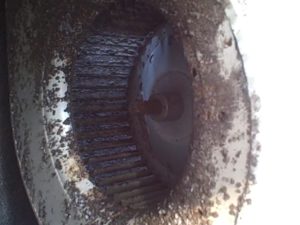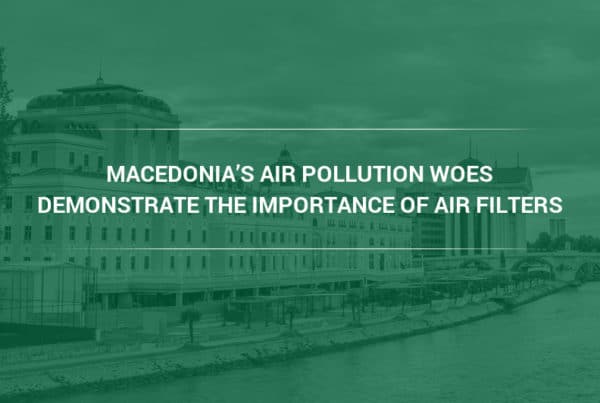Metal air filters were a forerunner to today’s convenient throw-away pleats, panels and pads. They were recyclable filters in that they could be removed from the HVAC system and spray cleaned to return them to their original clean condition for reuse. The process was labor intensive and the costs soon outweighed the advantages so facilities turned to the less costly alternatives we are familiar with today. Metal filters are also unable to match the higher efficiencies of media based throwaway filters. Are there still applications for these workhorse products?
One application is moisture removal. Water is the enemy of a healthy HVAC system and excess amounts of moisture can cause severe problems for building occupants. Metal filters, or moisture separators as they would be referred to in this instance, can be over 95% efficient on removing water droplets from the airstream. In water laden applications metal filters can increase the life of HVAC equipment and prevent the hazards of water supported biological growth downstream. In many hospital HVAC systems, because of hospital-specific HVAC design requirements, high levels of water vapor can be generated, wherein metal filters offer an excellent solution.
There are also facilities that have problems related oil mists from manufacturing processes wherein recirculation of this air could cause health problems or otherwise compromise the HVAC system operation. In oil mist applications the captured oil may even be reclaimed and reused in the original process contributing to the sustainable concept of recycling.
Another common application for metal filters is grease removal from kitchen hoods. Normally manufactured of an aluminum mesh or stainless steel these filters. The use of these filters prevents grease build-up in hood plenums, duct work, fan assemblies, rooftops and adjacent surfaces. They may also reduce emissions that may offend adjacent properties to the kitchen exhaust.
Camfil, the world’s leading manufacturer of air quality related air filtration products, does not recommend metal filters for standard HVAC applications because their particle removal efficiency is not up to speed when considering disposable alternatives. When large contaminants, 10 microns in size or larger are of concern, then metal filters may be the proper choice. Camfil ECO Moisture Separator address the problems in moisture-laden applications with a removal efficiency of over 98% at 20 microns. Camfil also offers their Type 44 for a variety of applications and their Type F/S Filters for dry applications involving lint or other bulky airborne contaminants.




